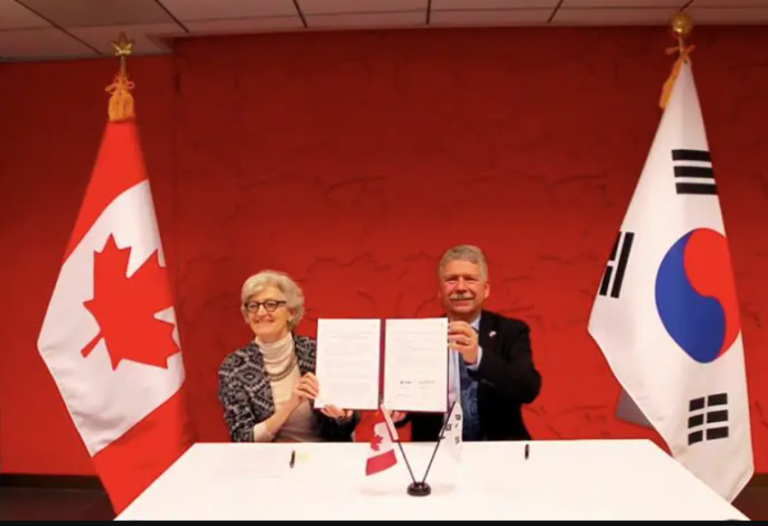Trigon Pacific Terminals and Ulsan Free Economic Zone Authority Collaborate on Hydrogen-as-Ammonia Exports
Trigon Pacific Terminals, a multi-commodity bulk and liquefied gas export terminal at the Port of Prince Rupert, and Ulsan Free Economic Zone Authority (UFEZ), an industrial hub specialized in automotive, shipbuilding, petrochemicals, and emerging green industries, have recently signed a memorandum of understanding (MoU) to enhance collaboration on the development of hydrogen-as-ammonia exports from Canada to South Korea.
Under the MoU, Trigon will provide support for the development of receiving terminals in Ulsan, South Korea, to serve as a crucial component of the supply chain into Asian markets. This partnership is expected to create new opportunities for Canadian products in the region.
Located strategically between Western Canadian producers and Asia-Pacific customers, Trigon aims to establish itself as Canada’s west coast export hub.
Rob Booker, CEO of Trigon Pacific Terminals, expressed his enthusiasm about the collaboration, stating, “Trigon has been actively advancing the development of a Canadian west coast export corridor for the shipment of hydrogen-as-ammonia from Canada to global markets. Today’s MOU with UFEZ further strengthens the strong ties between our two nations and our organizations.”
“We are grateful for the opportunity to collaborate with UFEZ with the aim for Canada to be a supplier of choice and we look forward to ongoing and productive cooperation with the esteemed UFEZ team.”
Notably, other industry players are also exploring Canada-to-South Korea exports. In 2024, Hydrogen Canada Corp. (HCC) and Korea Southern Power (KOSPO) announced their cooperation on the development of HCC’s clean hydrogen/ammonia project in the Alberta Industrial Heartland, supporting the necessary export facilities to transport the product to Asian markets.
Additionally, industry leaders from North America, Asia, and Europe have come together to form the North Pacific Green Corridor Consortium (NPGCC), aiming to decarbonize the value chain for commodities between North America and Asia.

